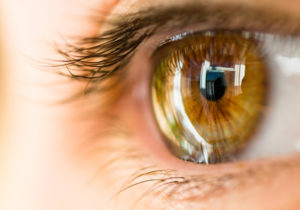Posted by: Aker Kasten Eye Center in Eye Conditions on November 15, 2017
 Keratoconus is an eye condition that results when the cornea bulges outward into a cone shape. Normally, the cornea is dome-shaped and held together by collagen. When these protein fibers weaken, the shape of the cornea slowly morphs into a cone. Here is a basic overview of what you should know about keratoconus.
Keratoconus is an eye condition that results when the cornea bulges outward into a cone shape. Normally, the cornea is dome-shaped and held together by collagen. When these protein fibers weaken, the shape of the cornea slowly morphs into a cone. Here is a basic overview of what you should know about keratoconus.
Keratoconus can damage your vision
The changes enacted by keratoconus make clear vision impossible without the assistance of contact lenses or eyeglasses. In severe cases, a corneal transplant may be required to improve vision.
Be aware of the symptoms
Keratoconus has many signs: double vision when looking through one eye, streaking lights, the appearance of halos around bright lights, seeing double or triple ghost images, feeling unsafe when driving at night due to blurry vision, and the distortion of near and far objects.
Keratoconus begins in the teenage years
Keratoconus typically begins when you are a teenager, but it has been known to occur in people up to the age of 30. It can appear beyond that, but it is less likely to develop in older individuals. If you or your parents have keratoconus, be sure to have your children’s eyes examined regularly starting at age 10. The condition may progress more quickly in individuals with certain allergies.
Keratoconus can be treated
Keratoconus can be alleviated through the use of glasses or contact lenses. Contact lenses for this condition are typically rigid gas permeable lenses. Cornea collagen crosslinking is a treatment for keratoconus that assists in stopping the condition from getting worse. Implants called Intacs can also be inserted beneath the cornea to provide more structural stability.
You cannot get LASIK if you have keratoconus
LASIK can be dangerous for those with keratoconus. The procedure can weaken the cornea even more and make vision worse. Even if keratoconus has a minimal effect on your vision, you should not pursue LASIK.
Schedule an Eye Exam
The best way to catch and treat keratoconus is to ensure you have regular eye exams. At Aker Kasten Eye Center we look forward to answering your questions and addressing your concerns. If you think you have any of the signs associated with keratoconus, please reach out to our team today. You can reach us at (561) 338-7722.
